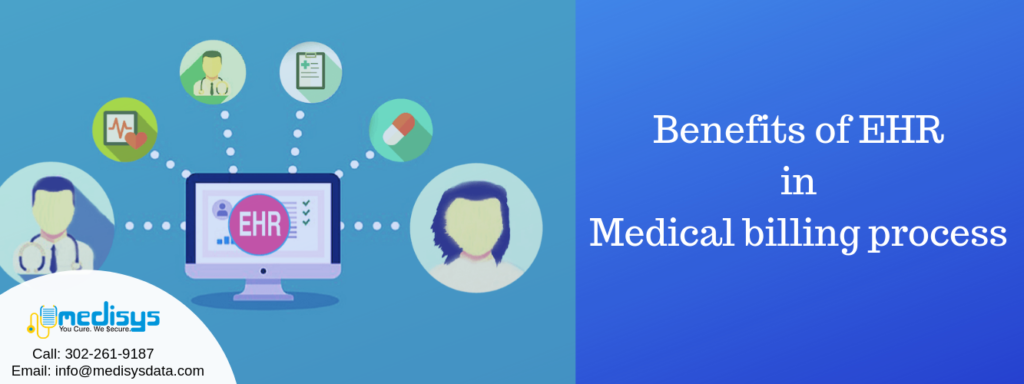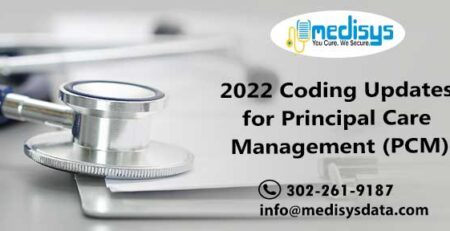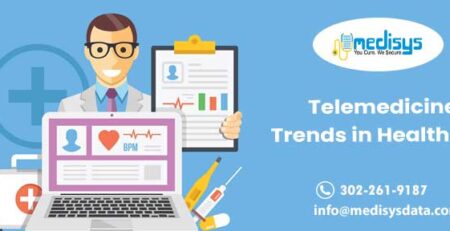The medical billing process plays a crucial role in the financial stability of healthcare organizations. Traditionally, this process involved handling paper-based records, which could be time-consuming, error-prone, and challenging to manage. However, with the advent of Electronic Health Records (EHR), medical billing has been revolutionized. EHR systems offer numerous benefits that streamline the billing process and contribute to efficient revenue generation.
Let’s explore the key advantages of implementing EHR in medical billing.
Enhanced Accuracy and Efficiency
One of the significant benefits of using EHR in medical billing is the improved accuracy and efficiency it brings to the process. EHR systems eliminate the need for manual data entry, reducing the risk of human errors associated with handwritten or transcribed records. By automating various billing tasks, such as claim generation, coding, and charge capture, EHR ensures that accurate and complete information is transmitted to payers, resulting in fewer claim denials and rejections. This streamlined approach minimizes billing errors, accelerates payment cycles, and maximizes revenue for healthcare providers.
Real-Time Documentation
EHR platforms enable real-time documentation of patient encounters, diagnoses, treatments, and procedures. This immediate recording of data ensures that the medical billing process remains up to date and captures all relevant information required for accurate coding and billing. With real-time documentation, healthcare providers can easily access and review patient records, making it easier to justify medical necessity, comply with coding guidelines, and substantiate claims during audits or appeals.
Improved Revenue Cycle Management
Efficient revenue cycle management is vital for the financial success of healthcare organizations. EHR systems offer robust tools and functionalities that optimize revenue cycle management. They can automatically verify insurance eligibility, generate electronic claims, and track the progress of claims through the reimbursement process. EHRs also facilitate seamless integration with medical coding software, enabling accurate coding and ensuring appropriate reimbursement for services rendered. By streamlining the revenue cycle, EHR systems help healthcare providers reduce administrative costs, minimize claim denials, and accelerate payment turnaround time.
Enhanced Compliance and Documentation
Compliance with regulatory guidelines is a critical aspect of medical billing. EHR systems are designed to support compliance by providing templates, prompts, and alerts that guide healthcare providers in documenting essential information required for accurate billing and coding. These systems also ensure that healthcare organizations adhere to privacy and security regulations, safeguarding patient information and minimizing the risk of data breaches. By maintaining comprehensive and compliant documentation, healthcare providers can mitigate legal and financial risks associated with improper billing practices.
Increased Access to Patient Information
EHR systems consolidate patient information, making it easily accessible to authorized healthcare professionals. This centralized access to patient data enhances collaboration and communication among care teams, including billing staff. Having a comprehensive view of the patient’s medical history, diagnoses, and treatments enables accurate coding and billing. It also facilitates better communication with insurance providers, ensuring proper reimbursement for services rendered. Access to real-time patient information also enables healthcare providers to identify and address any documentation gaps or missing details that could affect the billing process.
Conclusion
Implementing EHR in the medical billing process offers numerous benefits for healthcare organizations. From improved accuracy and efficiency to enhanced revenue cycle management and compliance, EHR systems streamline billing operations and contribute to efficient revenue generation. By embracing EHR technology, healthcare providers can optimize their billing processes, reduce administrative burdens, and improve financial outcomes. The integration of EHR into medical billing is a significant step toward achieving a more efficient and sustainable healthcare system.
To ensure you to take full advantage of the benefits of EHR (Electronic Health Records) in Medical billing process is to achieve its meaningful use. You can gain benefits beyond financial incentives.
Automation in Medical Billing is changing the face of healthcare industry in the US. As more and more health professionals use electronic medical billing system, their chances of receiving payments by the patients’ healthcare providers increase.












